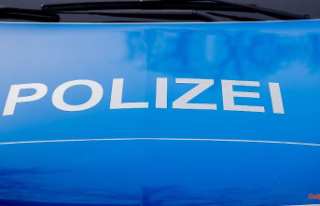Sankt Augustin (dpa / lnw) - NRW Minister of Agriculture Silke Gorißen (CDU) praised the efforts to protect fish and water bodies during an on-site visit to the Sieg. More than 5,000 salmon have returned to North Rhine-Westphalia since 1998, said the minister at a control station for migratory fish on the Sieg weir in Sankt Augustin-Buisdorf. This is not a natural event, but the result of the NRW migratory fish program and many volunteers at Sieg, Wupper, Dhünn and Rur, said Gorißen, according to a statement on Monday.
With the migratory fish program started in 1998, formerly native migratory fish species such as salmon, allice shad and houting are being reintroduced to North Rhine-Westphalia. For this purpose, old weirs are removed and fishways are installed next to locks or dams, with the help of which fish can overcome these obstacles. At the same time, young salmon, eels and allice shad are placed in suitable stretches of water.
Previously, inadequately protected turbines in hydroelectric power plants had posed a deadly threat to fish. In addition, there was water pollution of all kinds and unregulated fishing for a long time. As recently as the 1990s, migratory fish were threatened in North Rhine-Westphalian waters or, like salmon, were extinct.
Migratory fish species often travel great distances. Salmon migrate back from the sea to the upper reaches of the rivers to spawn. The opposite is true for the European eel: it migrates around five thousand kilometers from the rivers to its spawning grounds in the western Atlantic.












